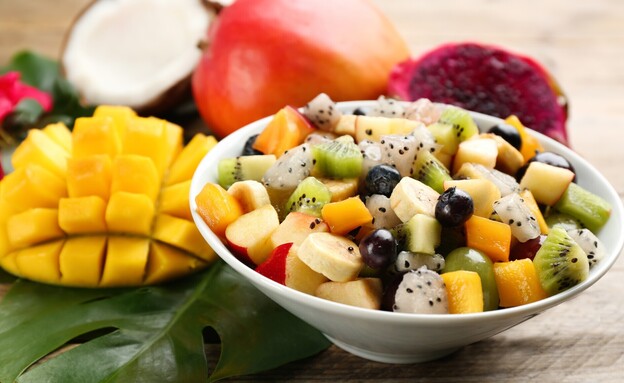The passion fruit is an exotic tropical fruit that gives every fruit salad a unique and fresh taste. You can find it in the summer but it is available on the jade shelves and in the chains also in the winter months. Here is everything you need to know about its wise consumption.
An excellent source of vitamins: The fruit is especially rich in vitamins Ca significant antioxidant that helps strengthen the immune system, protect the cells from free radical damage, and also improve the absorption of iron from food, which can help prevent anemia. vitamin A The one found in passion fruit is an essential component for maintaining eye health, night vision, skin function and the immune system. The presence of these vitamins gives passion fruit antioxidant properties, which allow the body to deal with damage caused by oxidation processes, which also contributes to slowing down the aging process.
Passion fruit contains a high concentration of Dietary fiber: These help speed up bowel activity and provide an effective response to constipation. Moreover, they help in prolonging the feeling of satiety and thus also in maintaining a normal weight. Incorporating fiber into your daily diet also helps maintain heart health by reducing blood cholesterol levels and balancing blood sugar levels.
Rich in potassium that contributes to heart health: This is a necessary mineral for maintaining a proper fluid balance in the body and protecting the cardiovascular system. Potassium helps reduce blood pressure levels, which reduces the chance of suffering from hypertension and cardiovascular diseases. Also, potassium contributes to the normal activity of the muscles and nerves, which makes it an important mineral especially for those who engage in physical activity or for people who need a proper electrolyte balance in the body.
Please note: people suffering from chronic kidney disease or conditions that require a limitation in potassium intake should avoid consuming a significant amount of passion fruit, due to its high potassium content.
Suitable for diabetics: Passion fruit contains a relatively low amount of carbohydrates compared to other tropical fruits, which makes it a good option for diabetics, as long as it is consumed in a controlled dose and according to a personal nutrition plan. The fibers in it slow down the rate of absorption of sugar from food into the blood, thus contributing to the prevention of sharp increases in sugar levels after meals. However, it is recommended that diabetic patients consult a dietitian in order to incorporate passion fruit into the menu appropriate for their medical condition, and to make sure that the portion of the fruit does not exceed the daily limits for carbohydrate consumption for them.
Not suitable for everyone
Passion fruit may contribute to the formation of bezoars – lumps of material that are not digested in the digestive system, which may form in the stomach or intestine. The danger exists especially among patients who have undergone gastrointestinal surgeries or those who suffer from various digestive system problems. Its hard seeds can get stuck in the digestive system and make it difficult for it to function properly
Patients after gastrointestinal surgery, and especially those who have undergone bariatric surgery (or other surgeries that affect the structure and function of the digestive system), are advised to avoid consuming passion fruit due to the content of the hard seeds. In such cases, it is important to consult a clinical dietitian, to examine whether the fruit can be consumed in a processed or seedless form, and to adjust the diet in such a way as to allow receiving the nutritional benefits of the fruit without the risk of complications.
In summary: Including passion fruit in a daily diet may contribute to a significant improvement in the quality of life and general health. This is a fruit rich in important nutrients, including vitamins, minerals and antioxidants, which contribute to the digestive system, heart, blood vessels and skin. However, its consumption is not recommended for everyone, so it is important to consult a dietitian before including it in the menu.
Yordan Nagelstein, Senior Clinical Dietitian at the Beit Levinstein Rehabilitation Center and General of the Sharon District – Samaria
